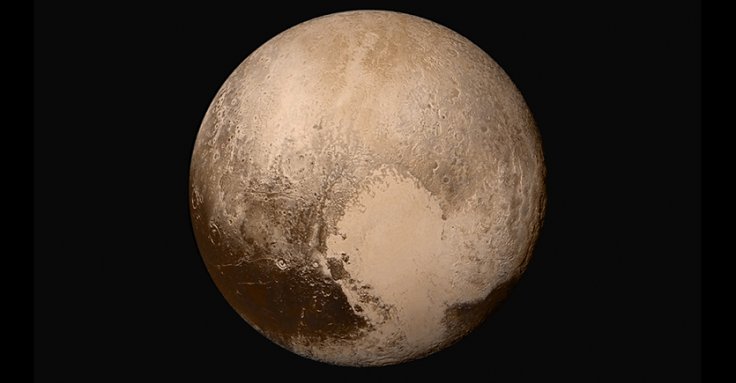
Until now, scientists strongly believed that Pluto is just a ball of ice, as this celestial body is 39 times farther from the Sun than Earth is. But now, a recent study has suggested that Pluto was a hot planet in its initial days of formation.
Results Based on NASA Data
Scientists made this conclusion after analyzing images taken by NASA's New Horizon spacecraft. The data suggested that there could be liquid water beneath the icy crust of Pluto, at a depth of 60 kilometers.
This study conducted by researchers at the University of California Santa Cruz revealed that there could have been liquid water in Pluto for the past 4.5 billion years. Interestingly, life onearth too evolved during this time period, and scientists believe that the same could have happened in Pluto as well, due to the radioactive decay deep in the planet's interior over millions of years.
"For a long time, people have thought about the thermal evolution of Pluto and the ability of an ocean to survive to the present day. Now that we have images of Pluto's surface from NASA's New Horizons mission, we can compare what we see with the predictions of different thermal evolution models. How Pluto was put together in the first place matters a lot for its thermal evolution. If it builds up too slowly, the hot material at the surface radiates energy into space, but if it builds up fast enough the heat gets trapped inside," said Francis Nimmo, professor of Earth and planetary sciences at UCSC and the co-author of the study in a recent statement.
UCSC planetary scientist Carver Bierson also hinted at the possibility of alien life on Pluto, as he revealed that water is one of the most necessary ingredients to host life on any space body.
Water Once Reached Pluto's Surface
A few months back, another study report using data gathered by NASA's New Horizon had suggested that liquid water might have once spewed on Pluto's surface after the eruption of a cryovolcano.
As scientists are pretty sure about the existence of water on Pluto, they believe that the possibilities of alien existence on this space body cannot be ruled out completely.
Another study conducted by Japanese researchers had noted that an insulating layer of gas might be maintaining the liquid nature of these oceans under Pluto's icy crust.









